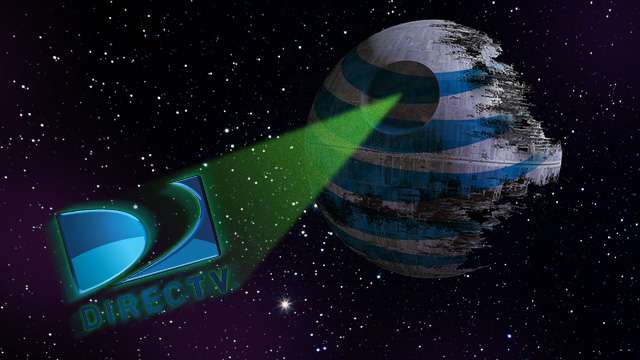
AT&T vows to keep DirecTV despite losing millions of subscribers

AT&T doesn’t intend to sell DirecTV despite internal discussions about whether to offload the struggling satellite TV business, The Wall Street Journal reported Tuesday.
“DirecTV is an important part of what we’re going to be doing going forward,” John Stankey, CEO of AT&T’s WarnerMedia division, said in an interview with the Journal.
In addition to leading WarnerMedia, Stankey is taking on a new role as AT&T’s chief operating officer, making him second in command to AT&T CEO Randall Stephenson. Stankey, who has been with AT&T since 1985, is reportedly the front-runner to become AT&T CEO when Stephenson retires.
The Journal report doesn’t have a direct quote from Stankey saying that AT&T won’t sell DirecTV. The Journal paraphrased that part, writing that Stankey “defended the company’s strategy in the media business and said it doesn’t plan to sell its DirecTV unit.”
Millions of subscribers left DirecTV
Stankey spoke to the Journal days after the paper reported that AT&T was considering whether to “part ways” with DirecTV after buying the company in 2015. “The telecom giant has considered various options, including a spinoff of DirecTV into a separate public company and a combination of DirecTV’s assets with Dish Network, its satellite-TV rival,” last week’s Journal report said, citing “people familiar with the matter.”
Stankey apparently didn’t deny the internal discussions but downplayed their significance. “We’re constantly looking at the portfolio,” Stankey said in the Journal’s new story. “That’s the normal course of business and it’s not unique to DirecTV.”
AT&T’s purchase of DirecTV hasn’t gone as planned. DirecTV satellite service went from 21 million subscribers at the end of 2016 to 17.9 million in Q2 2019, according to Leichtman Research Group. AT&T told investors recently that it expects to lose another 1.1 million TV customers in the third quarter, including both DirecTV satellite and U-verse wireline TV.
Activist investor Elliott Management Corp., which has a $3.2 billion stake in AT&T, has criticized AT&T’s TV strategy and urged the company to consider divesting DirecTV.
Despite the big subscriber losses, Stankey noted that DirecTV is a big part of AT&T’s advertising businesses because it provides data that is useful for targeted ads, the Journal wrote.
“Although DirecTV has hemorrhaged subscribers as consumers cancel their TV service, Mr. Stankey said it would play a significant role when the company launches a subscription video-streaming product next year that brings together content from its WarnerMedia unit, which includes HBO and Warner Bros.,” the Journal report also said. That’s apparently a reference to HBO Max, which AT&T says it will launch in spring 2020.
While AT&T says DirecTV is crucial to its streaming TV plans, the company has so far struggled to convert the traditional TV business to streaming. AT&T launched DirecTV Now in November 2016 with discount pricing starting at $35 a month. DirecTV Now built a subscriber base of 1.86 million by the end of Q3 2018, but that number dropped to 1.34 million by June 2019 after a series of price increases.
AT&T is facing a class-action lawsuit alleging that it lied to investors in order to hide the failure of its DirecTV Now streaming TV service. Plaintiffs in the case allege that AT&T supervisors encouraged sales reps to create fake DirecTV Now accounts and sign AT&T customers up for DirecTV Now “without the customer knowing.”
AT&T decided to kill the DirecTV Now brand name this summer and rename the service “AT&T TV Now.” This was a confusing move because AT&T also created another streaming service called AT&T TV, and the company hasn’t been able to keep the names straight in its communications with customers.




